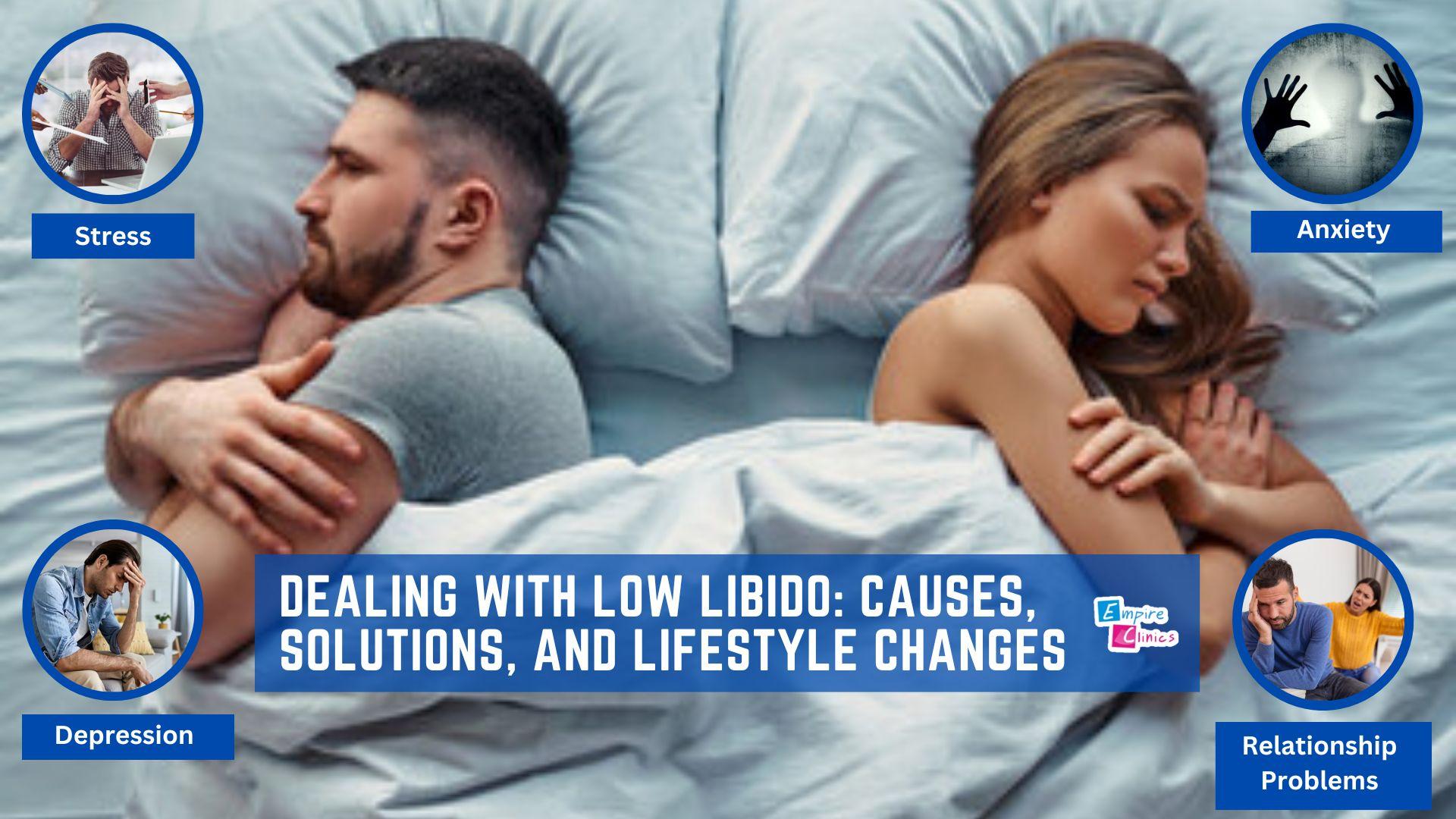Low libido or a decreased interest in sexual activity, can be distressing for individuals and their partners. Understanding the causes, finding solutions, and making certain lifestyle changes can help address this issue and restore a fulfilling sexual relationship.
Causes of Low Libido:
Various factors can contribute to low libido in both men and women. Physical causes may include hormonal imbalances, certain medications, chronic illnesses, or physical conditions. Psychological causes can stem from stress, anxiety, depression, or relationship problems. Lifestyle factors such as poor diet, lack of exercise, excessive alcohol consumption, and sleep deprivation can also impact sexual desire.
Solutions for Low Libido:
Addressing low libido requires a comprehensive approach. Consulting a healthcare professional is essential to identify underlying causes and develop an appropriate treatment plan. Some potential solutions include:
- Hormone therapy: In cases where hormonal imbalances are the cause, hormone replacement therapy may be recommended.
- Medication adjustments: Certain medications, such as antidepressants or blood pressure drugs, can affect libido. Discussing alternative medications or adjusting dosages with a doctor may help.
- Psychological counseling: Therapy can assist in addressing emotional issues, reducing stress, and improving communication within relationships.
- Relationship therapy: Couples counseling can help address any conflicts, improve intimacy, and strengthen emotional connections.
- Sex therapy: Certified sex therapists can provide guidance on improving sexual communication, exploring fantasies, and enhancing arousal.
- Stress management: Employing stress-reducing techniques like mindfulness, meditation, and relaxation exercises can positively impact libido.
- Lifestyle changes: Adopting a healthy lifestyle can improve overall well-being and enhance sexual desire. Regular exercise, a balanced diet, quality sleep, and reducing alcohol and tobacco consumption can all contribute to increased libido.
Lifestyle Changes for Improved Libido :
In addition to the solutions mentioned above, making certain lifestyle changes can have a positive impact on libido:
- Exercise regularly: Physical activity stimulates blood flow, increases energy levels, and releases endorphins, all of which can boost libido.
- Eat a balanced diet: A nutritious diet supports overall health, provides essential nutrients, and helps maintain hormonal balance. Include fruits, vegetables, lean proteins, and whole grains.
- Manage stress: Chronic stress can dampen libido. Engage in activities that help you relax, such as yoga, meditation, or hobbies you enjoy.
- Prioritize sleep: Sufficient sleep is crucial for hormonal balance and overall well-being. Aim for 7-8 hours of quality sleep each night.
- Communicate with your partner: Open and honest communication about desires, expectations, and concerns can foster intimacy and address any underlying relationship issues.
- Create a romantic atmosphere: Set the mood with candlelight, soft music, or engaging in activities together that promote emotional connection.
- Try new activities: Exploring new sexual experiences or incorporating sensual activities like massages or bathing together can reignite desire.
- Seek professional help: If self-help measures do not yield improvement, do not hesitate to seek the assistance of a healthcare professional or sex therapist.
Conclusion :
Low libido can be a temporary or long-term issue, but with proper understanding, solutions, and lifestyle adjustments, it is possible to overcome this challenge and reclaim a satisfying and fulfilling sexual relationship. Remember to consult healthcare professionals for personalized advice and support.








